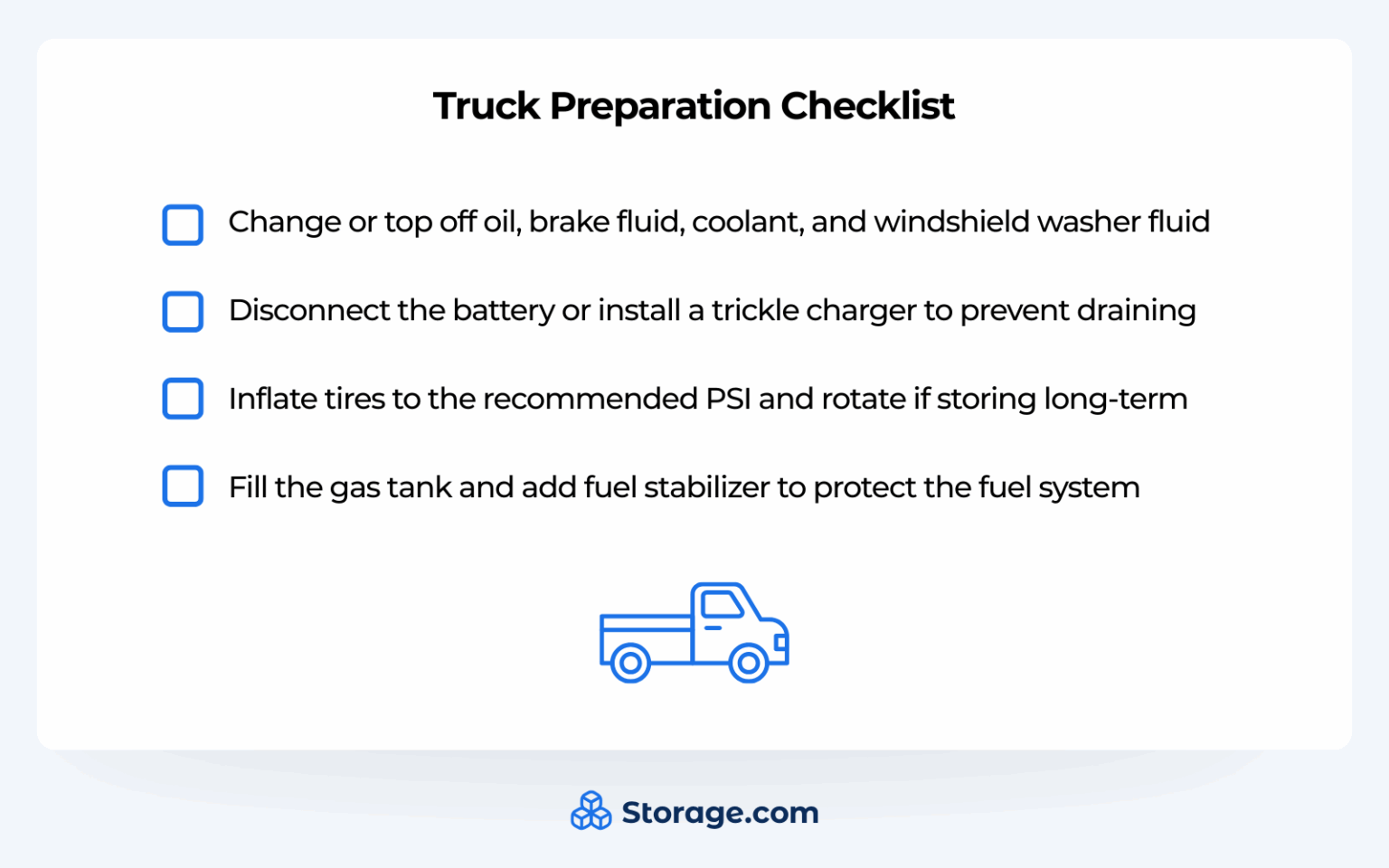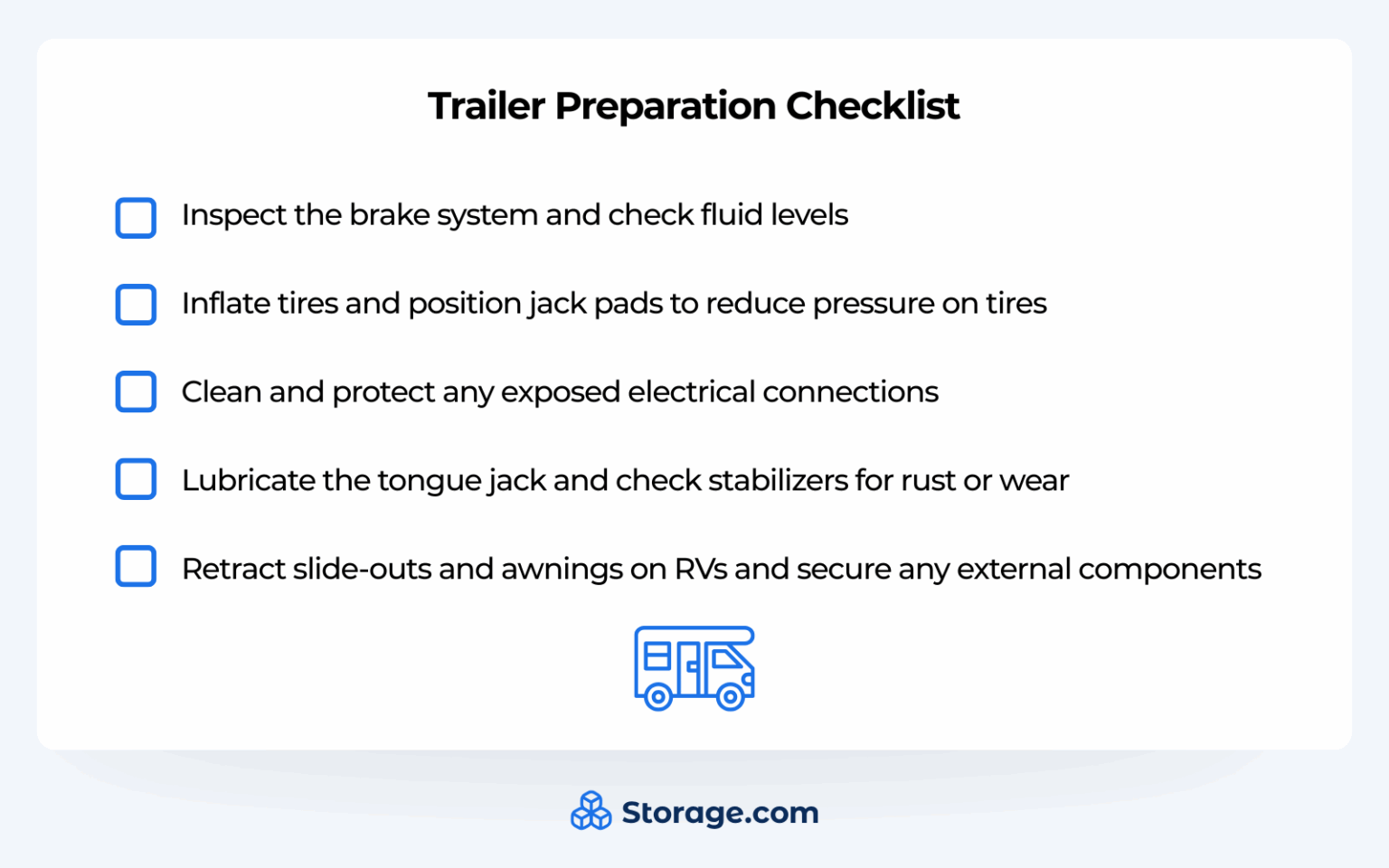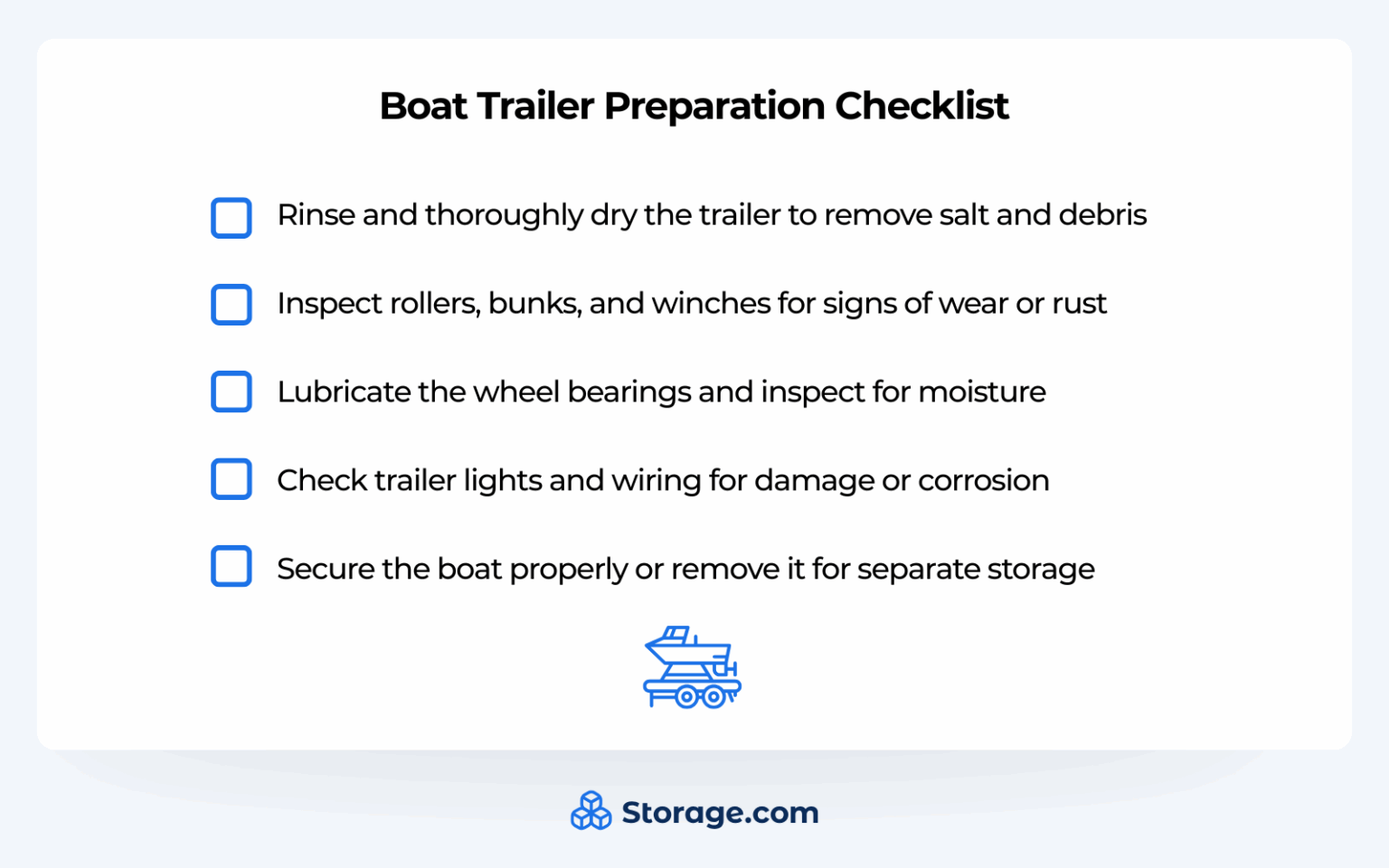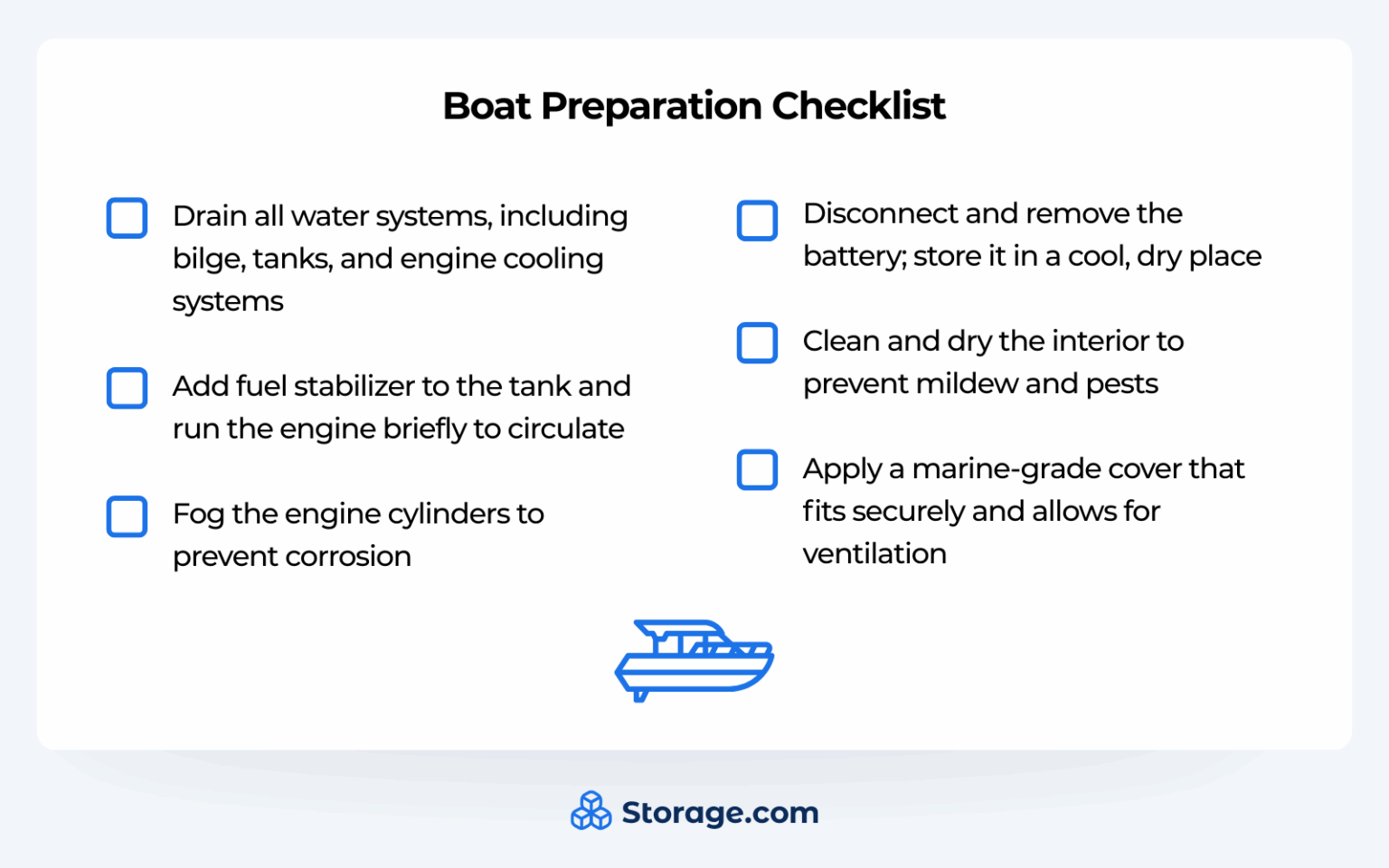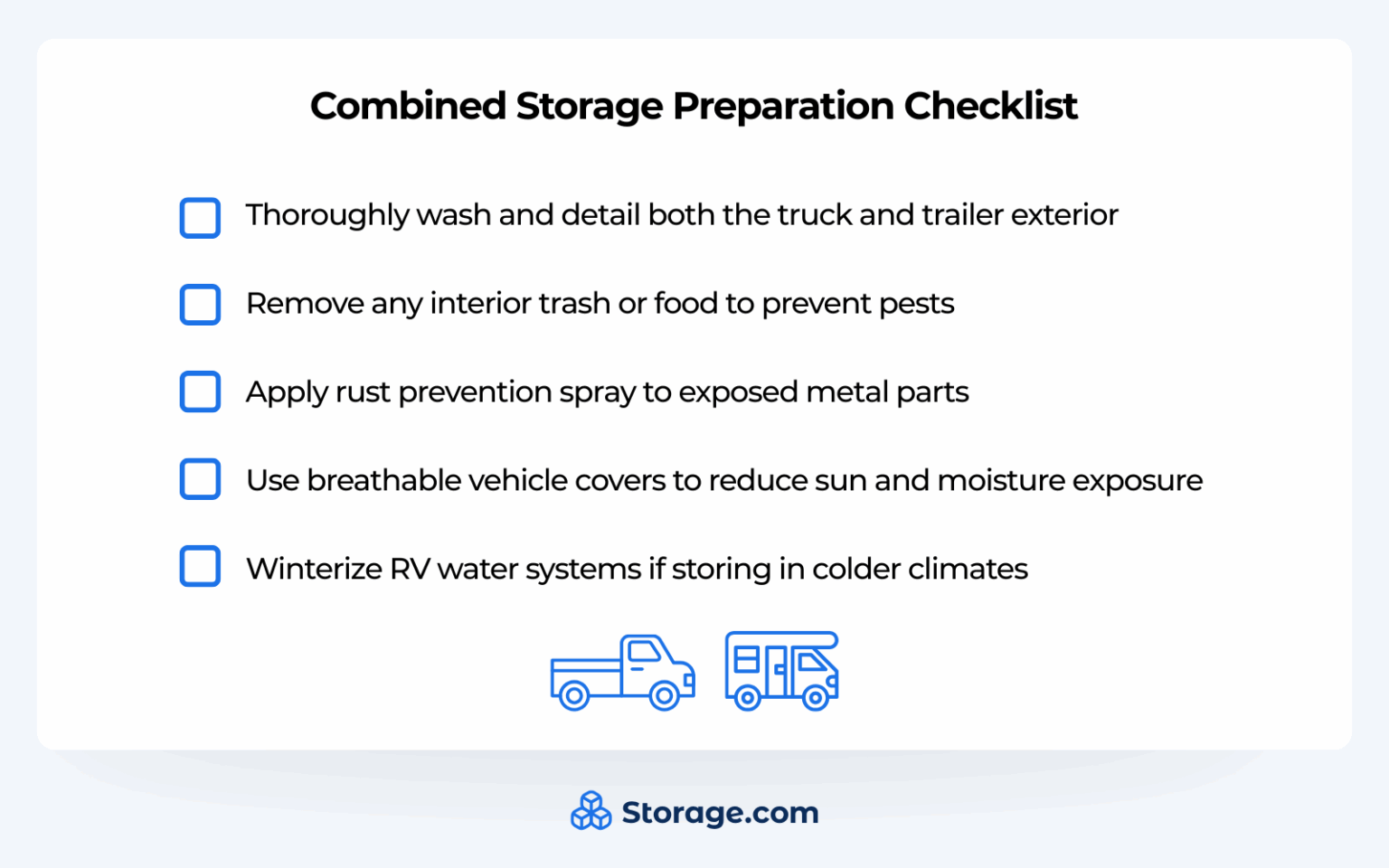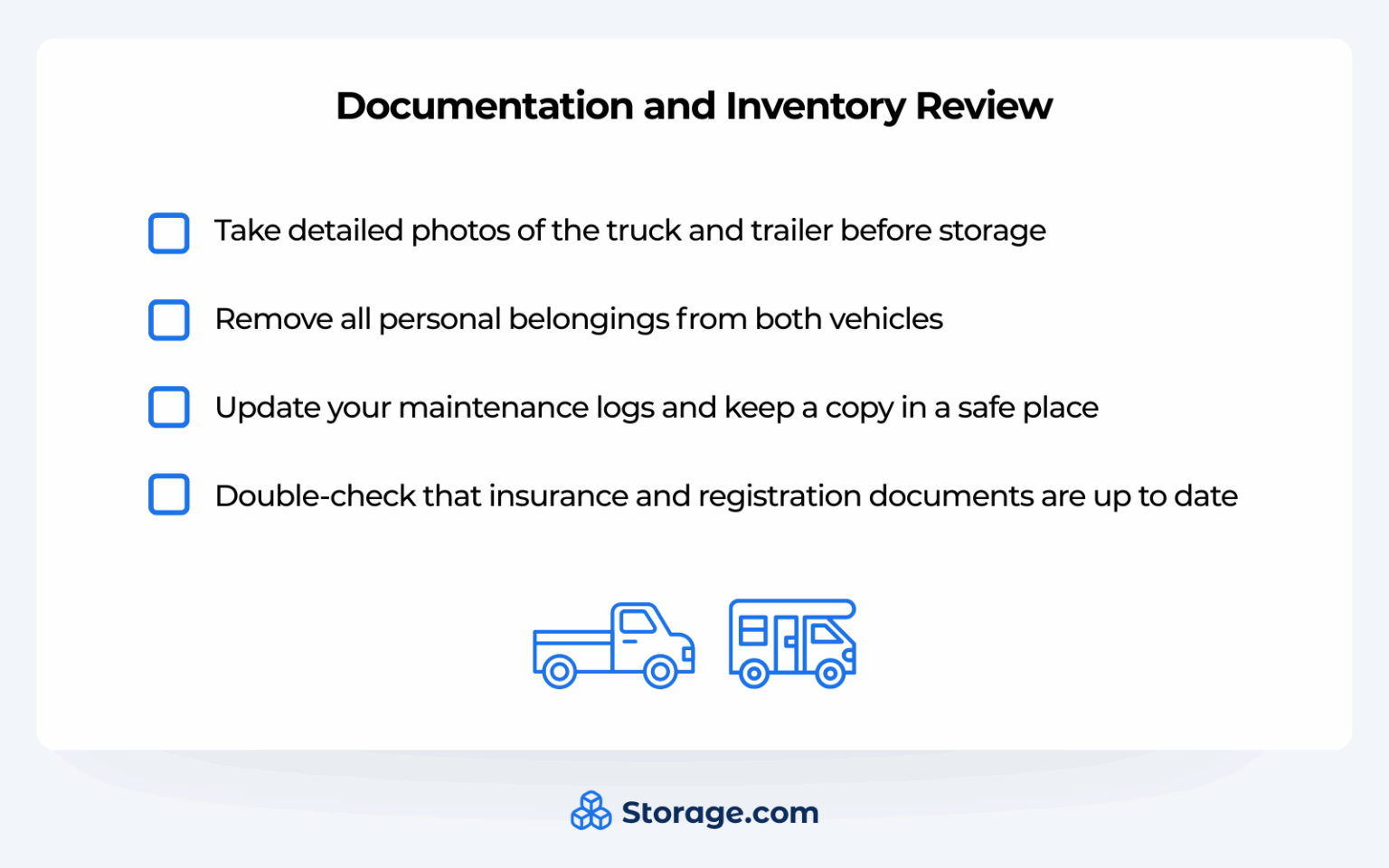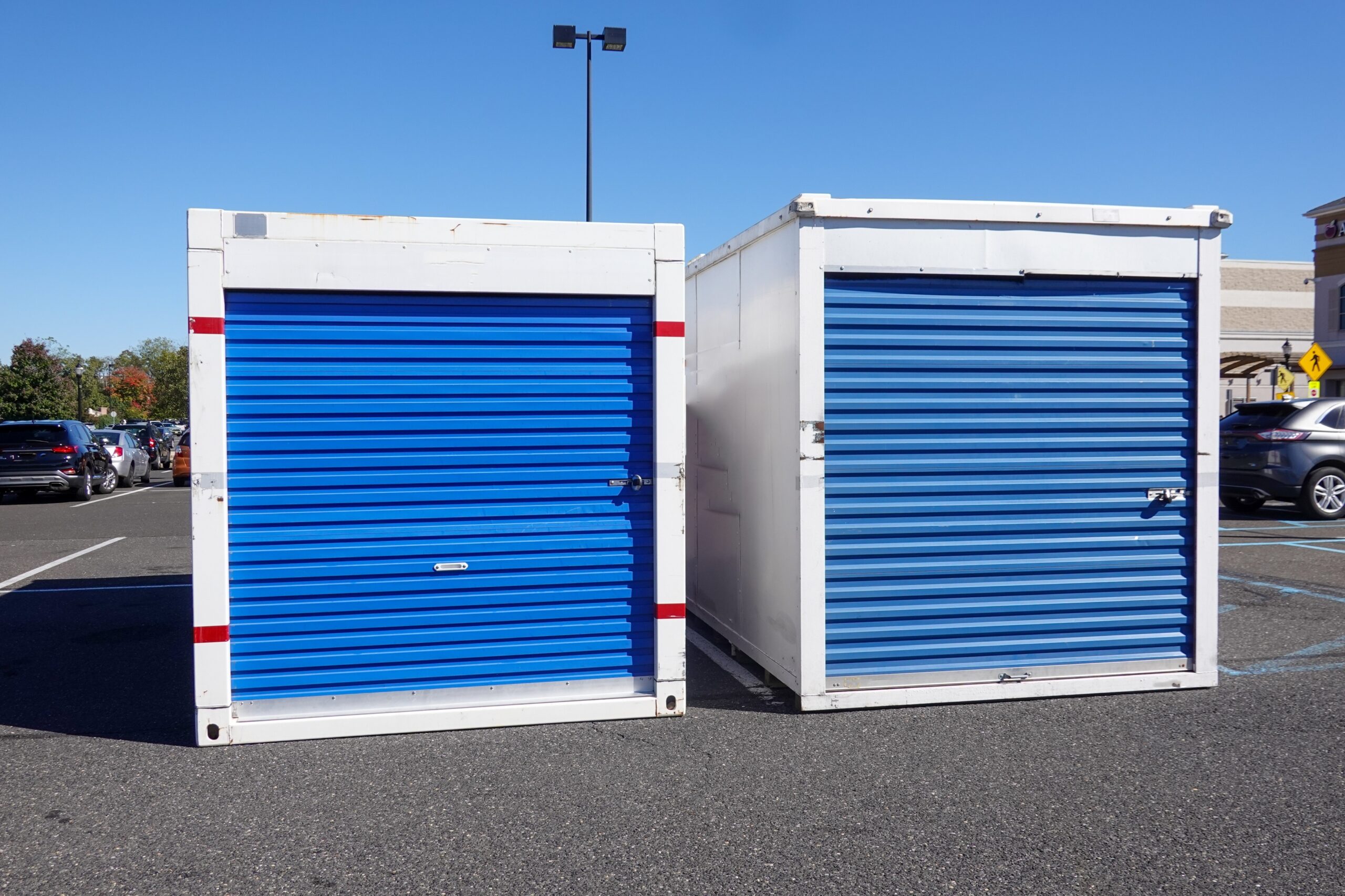Article takeaways
- Truck and trailer storage comes in a range of options, outdoor, covered, indoor, and specialized facilities, each offering different levels of protection and price points.
- Choosing the right truck and trailer storage depends on your vehicle’s size, usage, value, and access needs.
- Storage costs vary based on type, location, and season, with national prices ranging from $30 to over $800 per month.
- Proper truck and trailer storage starts with careful preparation, insurance coverage, and choosing a facility that meets both space and security requirements.
Road trip coming up? You may be planning a getaway with your RV, juggling equipment trailers for your business, or just trying to reclaim your driveway. As more people invest in larger vehicles and as neighborhood restrictions tighten, off-site storage is becoming less of a luxury and more of a practical necessity.
This guide will walk you through the essentials of truck and trailer storage, from comparing storage types to exploring cost factors, prepping your vehicle, and knowing what to look for in a facility. Whether you’re storing a pickup, flatbed, RV trailer, or something in between, this guide is designed to help you make a confident, informed decision.
Why You Might Need Truck or Trailer Storage
If your truck or trailer is sitting idle in your driveway—or worse, violating neighborhood or Home Owner’s Association (HOA) parking rules—it might be time to consider off-site storage. You may be coming off a season of contract work, preparing for a long deployment, or simply not using your RV or trailer as often as expected. Whatever the case, having a secure place to store your trailer, RV, or off-road vehicle (ORV) can bring peace of mind and free up space at home.
People turn to off-site storage for all kinds of reasons:
- RV owners who need a safe place to store their rig between adventures
- Contractors looking to store utility trailers when not on the job
- Homeowners or renters living under HOA, apartment restrictions, or landlord preferences
- Travelers, snowbirds, or military members planning extended absences
Beyond convenience, storing your truck or trailer off-site helps protect it from weather damage, theft, and long-term wear and tear. And with the right facility, it’s often easier and more affordable than you’d think.
Truck and Trailer Storage Options: What to Know
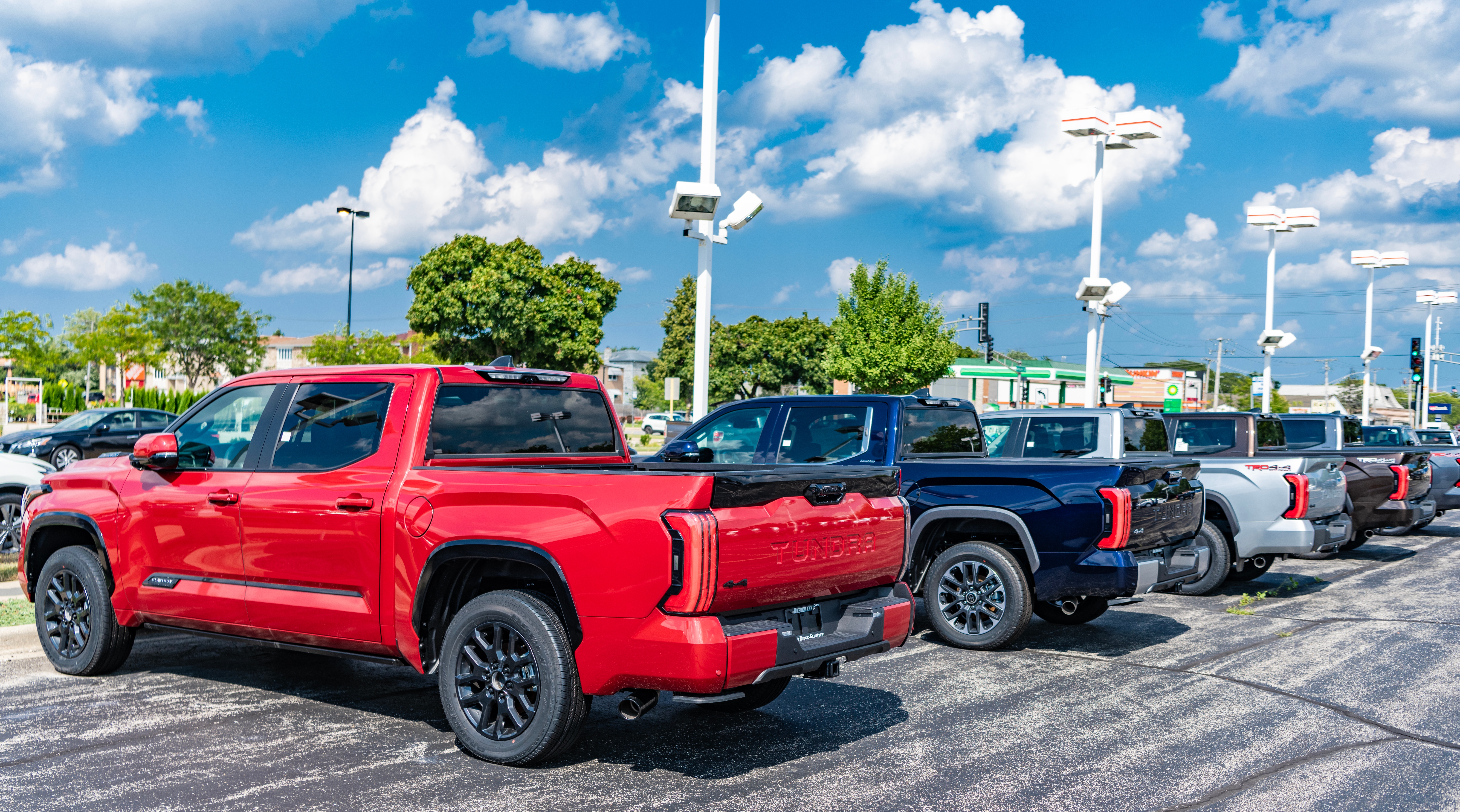
Truck and trailer storage isn’t as easy as snagging a self-storage unit, and that’s a good thing! Storing a compact pickup is going to look a lot different than storing a 35-foot fifth wheel. There’s a range of storage options that cater to different needs, budgets, and vehicle types. From open-air parking spots to climate-controlled indoor units, knowing your options is the first step to finding the right fit.
Outdoor Uncovered Truck Storage
Outdoor, uncovered spaces are the most affordable storage option available, often costing significantly less than covered or indoor alternatives. These spaces are typically located in paved or gravel lots with assigned parking spots and essential security features like perimeter fencing, gated access, and sometimes video surveillance.
The tradeoff? Full exposure to the elements. Vehicles stored outdoors face sun damage, snow accumulation, rain, and potential wind exposure, which can make a massive impact on certain materials over time. Still, for short-term storage, rugged trailers, or budget-conscious users like contractors and seasonal RV owners, outdoor storage offers a simple and cost-effective solution.
Covered Storage (Carports/Canopies)
Covered storage, such as carports or canopy-style shelters, offers a balance of affordability and protection. These open-sided structures shield vehicles from direct sun, rain, and hail, which can help preserve paint, seals, and finishes over time. They’re especially useful for RVs and trailers with weather-sensitive materials that don’t require full enclosure. While they don’t provide total climate control, covered spaces tend to be more budget-friendly than indoor units and more protective than outdoor spots. The open-sided design also allows for easier maneuvering of large combinations, like a truck and trailer parked together.
Indoor Truck Storage
Enclosed units or warehouse-style storage offer the highest level of protection available, ideal for valuable vehicles like luxury RVs, restored classic trucks, or anything you plan to store long-term. These spaces are fully enclosed, often climate-controlled, and provide added security through limited access and reinforced barriers. That peace of mind comes at a premium, though. Indoor storage is typically the most expensive option and may have limited availability depending on your location and vehicle size. Still, for owners of sensitive equipment or high-value vehicles, it’s often well worth the investment.
When it comes to pricing, indoor storage often reflects a premium price, and that pricing reflects more than just the square footage. Costs may increase based on features like climate control, enhanced ventilation, humidity regulation, 24/7 access, or proximity to a major metro area. Some facilities even offer concierge-style services, such as battery maintenance or vehicle checks, which can add convenience but also cost. If you’re comparing indoor options, make sure to ask which of these features are included and which are add-ons.
Specialty Vehicle Storage Facilities
Some storage providers specialize in oversized vehicles, offering tailored solutions for everything from RVs and boat trailers to commercial trucks and semi-trailers. These dedicated facilities often feature wide access roads for easier navigation, high-clearance parking, and designated lots for long trailers or fifth wheels. Many also provide dump stations, electric hookups, and on-site maintenance areas, making them especially appealing to fleet managers or RV owners looking for full-service storage.
Contractors and business owners may also benefit from specialized equipment storage solutions that support jobsite trailers, machinery, and work vehicles. If you’re managing multiple vehicles or need extra amenities beyond basic parking, a specialty truck and trailer storage facility may be your best bet. What makes a facility “specialized” can vary, but often includes a combination of infrastructure and services designed specifically for large vehicles.
Common specialty infrastructure features include:
- Reinforced pavement designed to support heavy commercial vehicles
- Angled or pull-through parking spots for easy access and maneuverability
- On-site waste disposal or dump stations
- Water fill-up stations or electric hookups for RVs
- Taller canopies or open-air structures for high-clearance vehicles
- Advanced security features tailored to expensive commercial equipment
- Optional access to mobile mechanics or routine maintenance services
These added touches help make specialty facilities a better fit for long-term, large-scale, or high-frequency storage needs, especially if you’re managing a fleet or relying on your trailer or truck for work or extended travel.
Truck and Trailer Storage: Space, Size, and Setup

Before you start searching for a storage unit, it’s important to understand the physical demands that trucks and trailers place on storage facilities. These vehicles vary widely in size, height, turning radius, and overall footprint, especially when you’re storing both together. Knowing the specs of your setup can save you time, prevent damage, and ensure easier access when you need it.
Start by measuring your total length from front bumper to trailer hitch, and don’t forget any add-ons like bike racks, ladders, propane tanks, or spare tire mounts. Smaller utility trailers or compact pickups may only require a car-sized storage unit. Height can also be an issue, particularly for RVs with rooftop A/C units, satellite dishes, or vent covers. Boat trailers and hauling equipment may have unique shapes or added height that require even more clearance.
Consider your vehicle’s turning radius and maneuvering needs. Can your truck and trailer combo easily pull into a straight-back spot, or will you need a facility with angled, pull-through access? Weight can also be a factor, especially for heavy-duty trailers, boats, or fifth wheels that may exceed standard pavement tolerances.
Some owners choose to store trucks and trailers separately, especially if they use the truck regularly but only need to store the trailer long-term. Others prefer a combined space for simplicity.
Truck and Trailer Storage: Costs and Pricing Factors
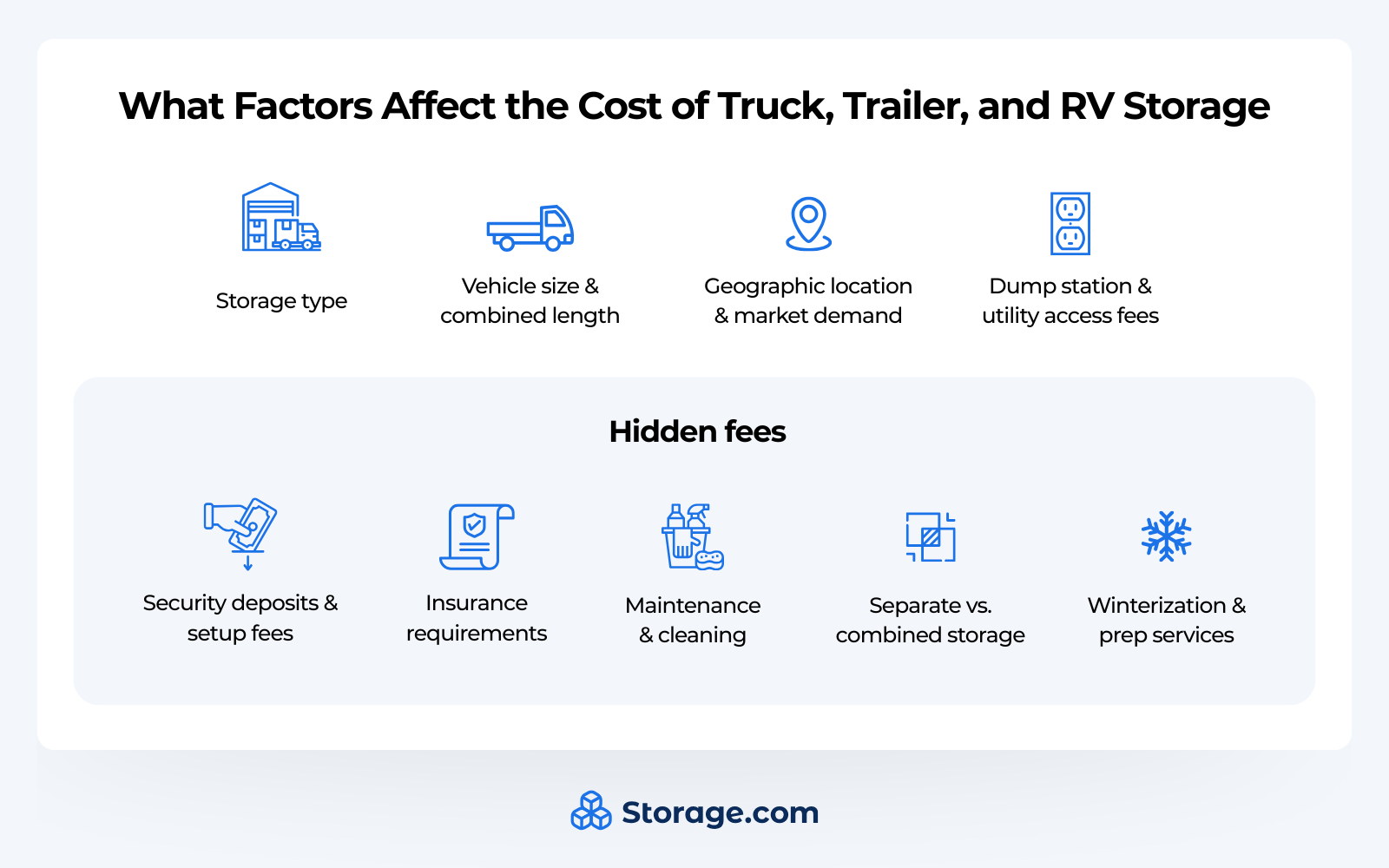
Before you choose a storage facility, it’s important to understand what you’re paying for and why prices can vary so dramatically.
Pro Tip: RV storage costs can range widely depending on location, amenities, and facility type. RV storage cost comparisons can help you understand what to expect in your region.
What Factors Affect the Cost of Truck, Trailer, and RV Storage?
Storage pricing isn’t just about the size of your trailer or vehicle. There are several details that factor into the final monthly cost. From how long you plan to store your vehicle to the type of facility and location, here’s what typically affects pricing:
- Storage Type: Outdoor storage is typically the most affordable, while covered and indoor options come at a premium.
- Vehicle Size & Combined Length: Longer or taller setups take up more space, which often translates to a higher monthly rate.
- Geographic Location & Market Demand: Storage near metro areas or high-demand seasonal locations may cost more than rural options.
- Separate vs. Combined Storage: Storing your truck and trailer together can simplify logistics, but may cost more than storing each vehicle separately.
- Length of Storage Commitment: Month-to-month rates are often higher than long-term contracts. Some facilities offer seasonal discounts or multi-month deals.
National Trailer Storage Cost Ranges
While pricing will vary by facility and region, most storage options tend to fall within a predictable range. A 10×25 storage unit size may be suitable for indoor storage of a standard pickup or midsize trailer, but always confirm square footage, ceiling height, and turning access.
Don’t forget: the type of storage you choose, outdoor, covered, or indoor, along with the size of your vehicle and whether you’re storing both together or separately, can also influence the monthly rate.
Here’s a look at what you can expect to pay on average across the U.S.:
| Storage Type | Estimated Monthly Cost |
|---|---|
| Outdoor truck storage | $50-$150 |
| Outdoor trailer storage | $30-$100 |
| Covered truck or trailer storage | $100-$300 |
| Indoor RV/trailer storage | $150-$500 |
| Combined truck + trailer storage | $100-$400 |
| Premium RV facilities | $200-$800 |
Boat & Boat-Trailer Storage Pricing
Outdoor boat storage is often more affordable than enclosed or covered options, but of course, protection and amenity levels quickly affect cost.
Here’s what you can expect to pay for boat storage in the U.S.:
| Storage Type | Estimated Monthly Cost |
|---|---|
| Outdoor boat + trailer | $30–$100 |
| Covered boat storage | $100–$300 |
| Indoor boat storage | $150–$500+ |
| Heated/climate-controlled boat storage | $250–$600+ |
Note: Boat storage tends to be priced differently than truck/trailer storage. Marine facilities often charge based on boat type (e.g., sailboat, fishing boat, yacht) and may include seasonal contracts or launch/retrieval services. Boat storage equipment, like slip access or trailer launch ramps, also factor into pricing.
Hidden Costs and Extra Fees for Truck, Trailer, and RV Storage
Even if a facility offers a great monthly rate, the final cost can climb quickly once extra services and requirements are factored in. In addition to your base storage cost, keep an eye out for these common add-ons:
- Security Deposits and Setup Fees: Some facilities charge a one-time admin or move-in fee.
- Insurance Requirements: You may need separate policies for trucks and trailers, especially if the trailer is not covered under your auto insurance.
- Maintenance and Cleaning Services: Optional add-ons like vehicle washing or battery checks can increase monthly costs.
- Dump Station and Utility Access Fees: RV owners may pay extra for access to water, electricity, or dump stations.
- Winterization and Prep Services: Some facilities offer professional winterizing, but it typically comes at an additional charge.
Pro Tip: Always ask for a full breakdown of fees before signing your contract. Some facilities bundle certain services into higher monthly rates, while others itemize everything, so knowing exactly what you’re paying for can help you compare options more accurately.
Security for Truck and Trailer Storage

Whether you’re storing your vehicle for a few weeks or several months, security should be one of your top priorities. Trucks and trailers are significant investments, and the right security features can mean the difference between peace of mind and costly damage, or worse, theft.
What to Look for in a Secure Storage Facility
A well-protected facility will usually offer a combination of physical barriers and monitoring systems designed to deter theft and prevent unauthorized access. Instead of just checking for cameras and a gate, take a close look at how the facility approaches security overall. Do they have 24/7 surveillance? Are access points monitored or limited to keycard entry? Is the lot well-lit and staffed regularly?
You’ll also want to consider whether the property offers individual unit alarms, fencing around the storage zones, or designated parking that keeps vehicles from being crammed too closely together. If you’re storing in an uncovered or shared lot, ask about perimeter fencing and how it reduces the risk of accidents or tampering between neighboring vehicles.
These kinds of questions can help you spot the difference between a facility that prioritizes protection and one that simply locks the gate at night.
Storage Insurance for Your RV, Truck, or Trailer Storage
Even the most secure storage facility can’t guarantee complete protection, which is why having the right insurance in place is just as important as physical security. For trucks, comprehensive auto insurance typically provides coverage while the vehicle is in storage, but it’s always best to confirm with your provider, especially if the storage facility is out of state or long-term.
Trailers often fall into a gray area. Depending on the type and how it’s used, you may need a separate trailer insurance policy. This is particularly true for RVs, which sometimes require specialized coverage different from standard trailers or utility haulers.
Keep in mind that facility insurance rarely covers your vehicle. Most storage businesses carry general liability, which protects them, not your property. To protect your vehicle in storage, ask your insurer about policy add-ons, endorsements, or commercial coverage if the trailer is used for business.
Lastly, review for gaps. For example, some policies won’t cover theft unless there’s evidence of forced entry, while others may exclude coverage if your vehicle isn’t actively used for a certain period. Clarifying these details ahead of time can save you major headaches down the road.
Preparing Your Truck and Trailer for Storage
Prepping your vehicle before storage isn’t just about cleanliness; it’s about safeguarding your investments. Whether you’re storing for a season or the long haul, a few preventive steps can go a long way. Proper preparation protects against weather damage, mechanical wear, pest issues, and corrosion, ensuring your truck and trailer are in great shape when you’re ready to use them again.
Truck Preparation Checklist
Start with the basics: your truck’s fluids, battery, tires, and fuel system. These are the areas most vulnerable to long-term wear during storage, and giving them some attention upfront will help keep your vehicle in better shape over time.
| Maintenance Task | |
|---|---|
| Change or top off oil, brake fluid, coolant, and windshield washer fluid | |
| Disconnect the battery or install a trickle charger to prevent draining | |
| Inflate tires to the recommended PSI and rotate if storing long-term | |
| Fill the gas tank and add fuel stabilizer to protect the fuel system |
Pro Tip: If your vehicle will be in storage long term, make sure your coverage accounts for non-use periods. This complete guide to vehicle storage outlines how to avoid gaps in protection.
Trailer Preparation Checklist
Next, turn your attention to the trailer. Whether it’s an RV, utility trailer, or equipment hauler, a few key maintenance steps will help prevent wear and tear while it’s off the road.
| Trailer Maintenance Task | |
|---|---|
| Inspect the brake system and check fluid levels | |
| Inflate tires and position jack pads to reduce pressure on tires | |
| Clean and protect any exposed electrical connections | |
| Lubricate the tongue jack and check stabilizers for rust or wear | |
| Retract slide-outs and awnings on RVs and secure any external components |
Boat Trailer Preparation Checklist
If you’re storing a boat trailer, there are a few additional maintenance tasks to keep in mind. Exposure to water, salt, and marine elements can increase the risk of corrosion and wear, so it’s important to give your trailer a little extra care before storage:
| Boat Trailer Task | |
|---|---|
| Rinse and thoroughly dry the trailer to remove salt and debris | |
| Inspect rollers, bunks, and winches for signs of wear or rust | |
| Lubricate the wheel bearings and inspect for moisture | |
| Check trailer lights and wiring for damage or corrosion | |
| Secure the boat properly or remove it for separate storage |
Boat Preparation Checklist
Your boat itself also needs prep before storage—especially if it’s being stored for the winter or a long off-season. These tasks help protect the hull, engine, and interior from damage while out of use:
| Boat Storage Task | |
|---|---|
| Drain all water systems, including bilge, tanks, and engine cooling systems | |
| Add fuel stabilizer to the tank and run the engine briefly to circulate | |
| Fog the engine cylinders to prevent corrosion | |
| Disconnect and remove the battery; store it in a cool, dry place | |
| Clean and dry the interior to prevent mildew and pests | |
| Apply a marine-grade cover that fits securely and allows for ventilation |
Combined Storage Preparation Tasks
Once you’ve handled the truck and trailer individually, it’s time to tackle the shared prep work. These final steps help protect both vehicles from the elements, pests, and long-term deterioration.
| Final Preparation Task | |
|---|---|
| Thoroughly wash and detail both the truck and trailer exterior | |
| Remove any interior trash or food to prevent pests | |
| Apply rust prevention spray to exposed metal parts | |
| Use breathable vehicle covers to reduce sun and moisture exposure | |
| Winterize RV water systems if storing in colder climates |
Truck and Trailer Documentation and Inventory Review
Before locking up your vehicle for the season, it’s important to get your paperwork in order. From photo documentation to maintenance logs, a thorough record helps protect your investment and simplifies the return-to-use process.
| Final Documentation Task | |
|---|---|
| Take detailed photos of the truck and trailer before storage | |
| Remove all personal belongings from both vehicles | |
| Update your maintenance logs and keep a copy in a safe place | |
| Double-check that insurance and registration documents are up to date |
Finding the Right Storage Facility
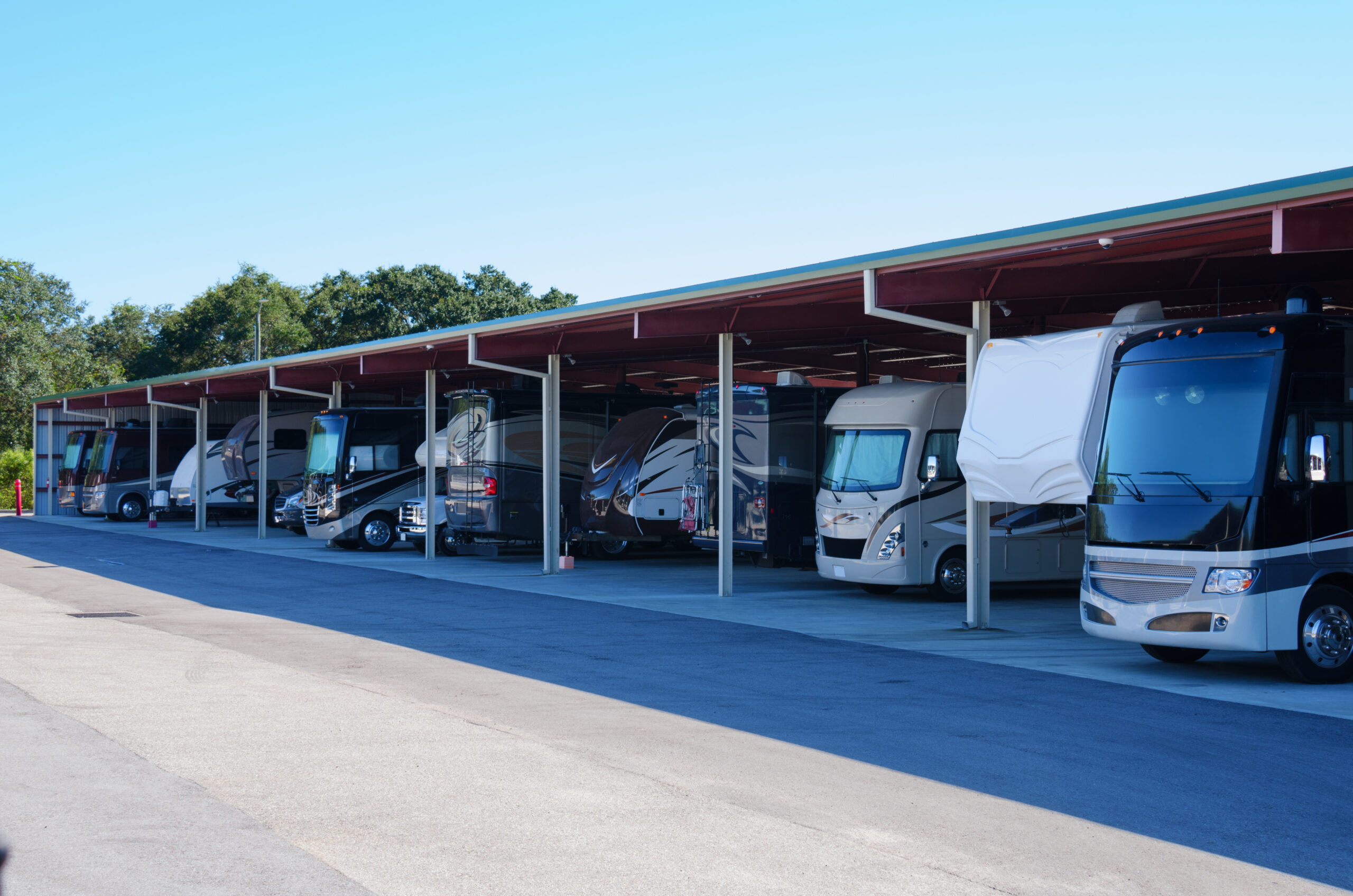
Finding the right storage facility isn’t just a box to check—it’s a big part of making sure your truck or trailer is safe, accessible, and protected. Sure, cost and availability matter, but things like location, ease of access, layout, and extra services can make the difference between a smooth experience and a frustrating one. Especially for larger vehicles and long-term storage, choosing a facility that truly meets your needs can save you time, money, and headaches later on.
Truck and Trailer Storage Location Considerations
When evaluating storage options, think beyond price and availability. A convenient location makes a big difference, especially if you plan to check on or access your vehicle regularly. A facility that’s close to home, your business, or common travel routes reduces travel time and makes maintenance easier. Look for wide access roads, ample turnaround space, and business hours that work with your schedule. These features are essential for maneuvering and accessing large vehicles safely.
You’ll also want to consider:
- Local traffic patterns and ease of maneuverability for truck-trailer combinations
- Zoning laws or HOA restrictions that might apply to large vehicle storage
- Proximity to RV service centers, mechanics, or fuel stations
Truck and Trailer Storage Facility Evaluation Checklist
Some storage facilities go above and beyond, while others just cover the basics, especially when it comes to accommodating trucks and trailers. As you compare your options, keep the following in mind:
- Does the facility have enough space to safely maneuver and park large vehicles?
- Are the security measures up to par for your needs?
- Are appropriately sized storage spaces available (outdoor, covered, or indoor)?
- What are the contract terms—month-to-month or long-term commitment?
- What do reviews and ratings say about the facility’s reliability?
- Are there RV-specific amenities like dump stations or electrical hookups?
Bringing a checklist with you on-site or during a virtual tour can help you spot red flags and identify the storage facility that truly meets your needs.
Seasonal and Short-Term Truck and Trailer Storage
Storing your truck, trailer, or boat for just a few weeks? Short-term storage options offer flexible protection without locking you into a long-term contract—ideal for off-seasons, relocation gaps, or temporary downtime.
- Winter storage for RVs and recreational trailers: Choose a facility with climate-controlled or indoor storage options to protect from freezing temperatures. Winterize the water systems, disconnect batteries, and seal entry points to prevent pests.
- Winter storage for boats: Opt for indoor or dry stack storage where available. Fully drain and winterize the bilge and engine, cover the boat securely with a breathable marine cover, and inspect hull supports or cradles.
- Seasonal work vehicle and equipment storage: Use outdoor or covered lots for landscaping trucks, snowplows, or trailers that rotate seasonally. Look for facilities with flexible access hours and wide lanes for easy drop-off and pickup.
- Moving and relocation storage: Choose short-term contracts or month-to-month leases to accommodate staggered timelines. Indoor units can provide added protection during transition periods.
- Temporary storage during repairs or maintenance: Covered storage can protect your vehicle from additional weather wear while it’s out of commission. Select a facility near your repair shop or dealership for easier coordination.
- Event-based storage needs: Some facilities offer weekend or week-long rentals to accommodate camping trips or temporary job sites. Be sure to confirm availability during peak seasons.
- Snowbird storage solutions for RV travelers: Look for long-term facilities near your primary home with winter-ready amenities like trickle chargers, climate control, and vehicle monitoring. Indoor options may provide extra security during the months away.
- Snowbird storage for boat owners: Seek out facilities that offer winterization services, indoor stacking, and boat lift or trailer storage. Some locations also offer pre-season prep so you can launch faster when spring arrives.
Common Truck and Trailer Storage Mistakes to Avoid
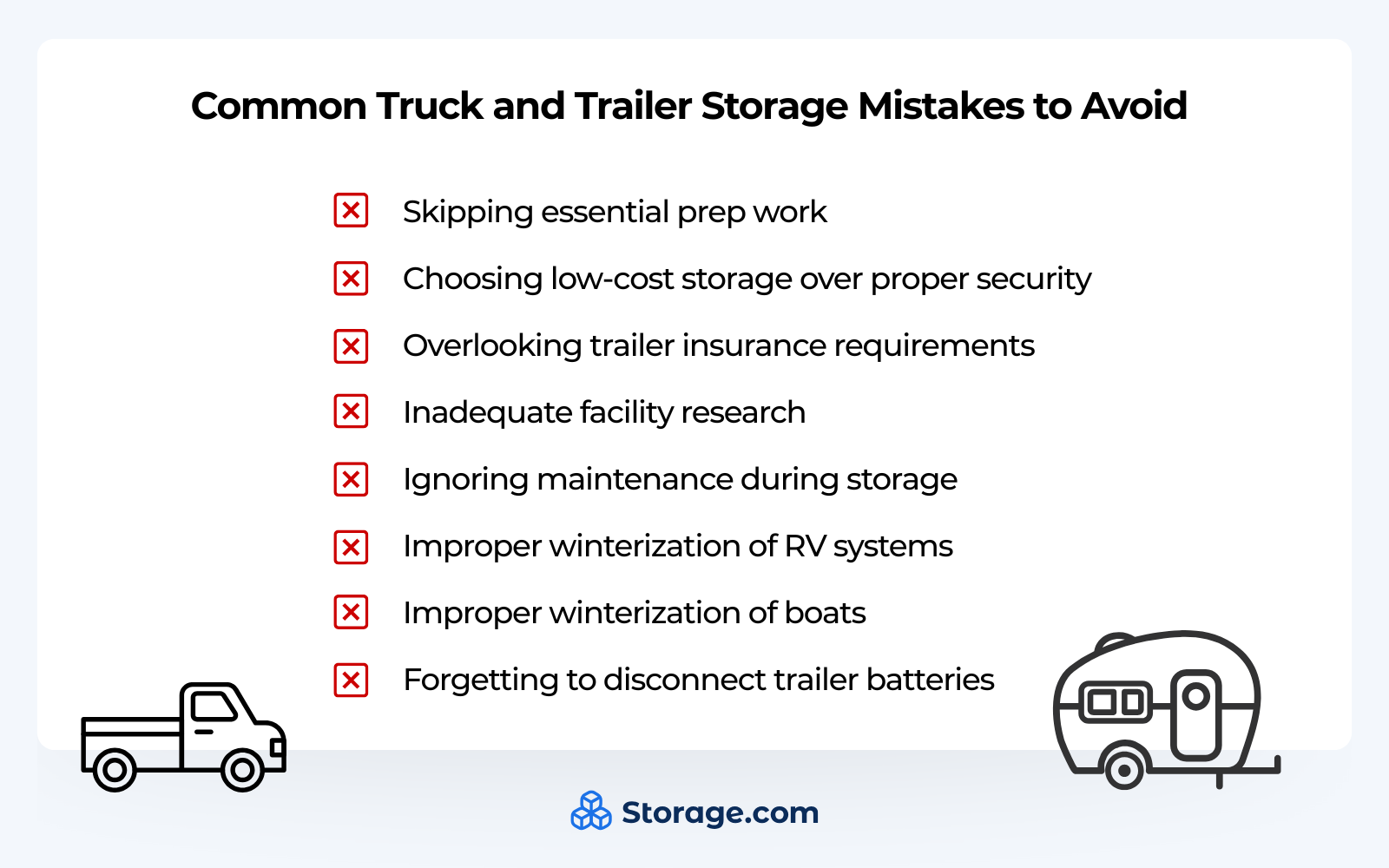
Even with the best intentions, it’s easy to overlook key steps that protect your vehicle in storage. Avoiding these common mistakes can save you from costly repairs, insurance issues, and unpleasant surprises down the line.
- Skipping essential prep work: Failing to prep your truck or trailer—like topping off fluids, disconnecting batteries, or cleaning the interior—can lead to corrosion, mechanical failure, and pest infestations.
- Choosing low-cost storage over proper security: A budget-friendly space might be tempting, but it can leave your vehicle exposed to theft or damage. For valuable RVs or trailers, prioritize facilities with top-tier security.
- Overlooking trailer insurance requirements: Trailer insurance isn’t always bundled with auto insurance. Make sure you understand what’s covered—and what’s not—before signing a storage contract.
- Inadequate facility research: Selecting a facility without checking access hours, vehicle maneuverability, or size availability can make storing (and retrieving) your vehicle more difficult than expected.
- Ignoring maintenance during storage: Long-term storage still requires occasional checks. Letting a vehicle sit unchecked for months can lead to flat tires, dead batteries, and other issues.
- Improper winterization of RV systems: Freezing temperatures can destroy pipes and water tanks. Always drain and protect RV water systems before winter storage.
- Improper winterization of boats: Boats require full draining of bilge systems, engine fogging, and dry, covered storage to avoid mold, mildew, and engine damage during cold months.
- Forgetting to disconnect trailer batteries: A drained battery can shorten its lifespan and complicate your return-to-use timeline. Disconnect or use a trickle charger when storing trailers with electrical systems.
How to Choose the Right Storage for Your Truck or Trailer
Every truck and trailer setup has unique storage needs, and finding the right solution is about more than just square footage. It’s about preserving your investment, minimizing stress, and knowing your vehicle is safe and ready when you need it.
Whether you’re storing a compact utility trailer or a luxury RV, the best storage solution balances protection, accessibility, and cost. Facilities that offer tailored space sizing, solid security measures, and flexible contracts can make a big difference in both short-term convenience and long-term peace of mind.
Choosing a storage provider isn’t just a logistical decision; it’s a safeguard for your time, money, and equipment. From avoiding costly weather damage to ensuring your trailer is easy to access when the season changes, smart storage is a proactive way to protect what moves you.
Ready to find the right truck and trailer storage near you? Explore available options at Storage.com and take the next step toward hassle-free storage today.

